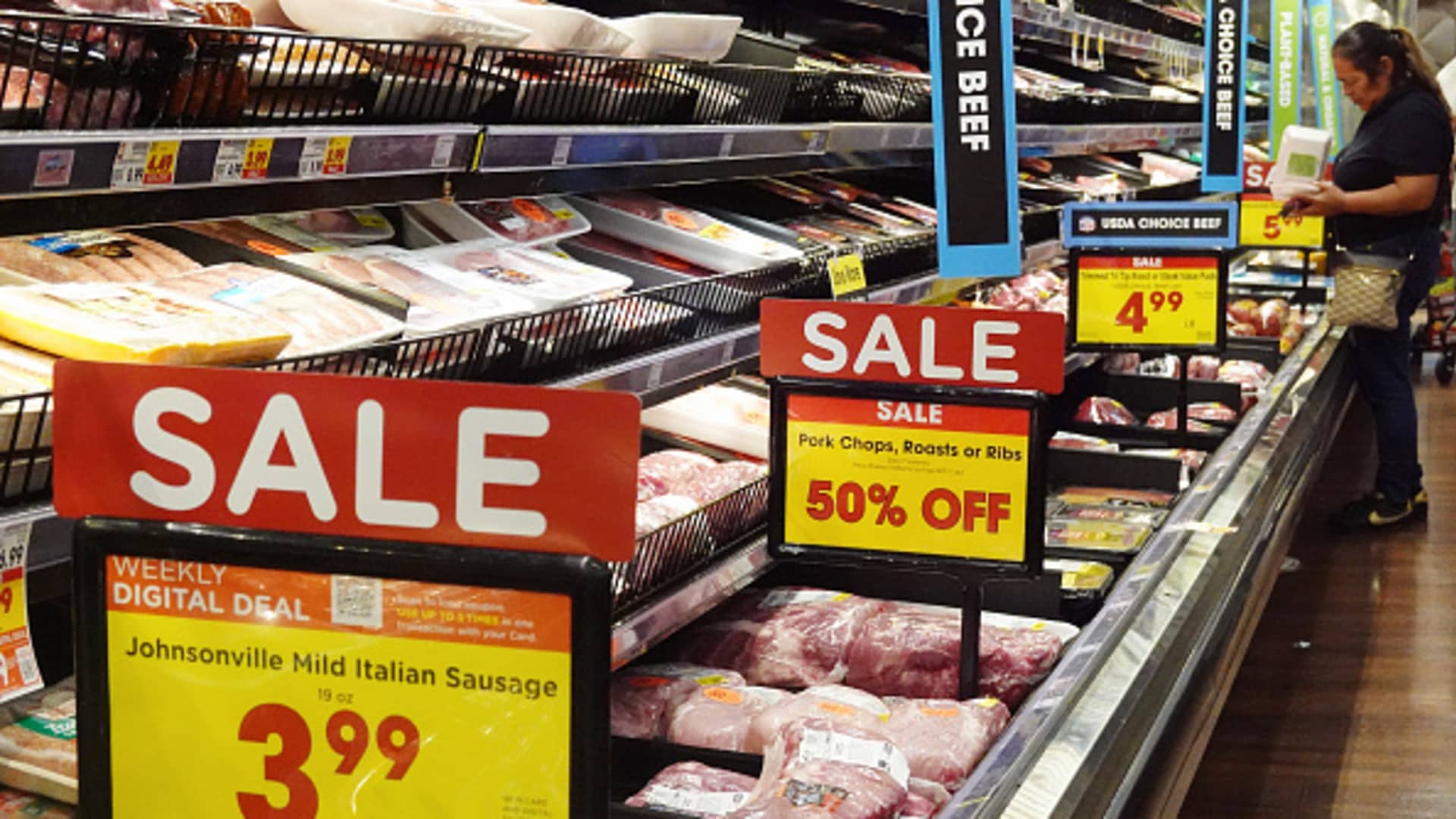The monthly inflation rate dipped in June for the first time in more than four years, providing further cover for the Federal Reserve to start lowering interest rates later this year.
The consumer price index, a broad measure of costs for goods and services across the U.S. economy, declined 0.1% from May, putting the 12-month rate at 3%, around its lowest level in more than three years, the Labor Department reported Thursday. The all-items index rate fell from 3.3% in May, when it was flat on a monthly basis.
This was the first time since May 2020 that the monthly rate showed a decrease.
Excluding volatile food and energy costs, so-called core CPI increased 0.1% monthly and 3.3% from a year ago, compared with respective forecasts for 0.2% and 3.4%, according to the report from the Bureau of Labor Statistics.
The annual increase for the core rate was the smallest since April 2021.
A 3.8% slide in gasoline prices held back inflation for the month, offsetting 0.2% increases in both food prices and shelter. Housing-related costs have been one of the most stubborn components of inflation and make up about one-third of the weighting in the CPI, so a pullback in the rate of increase is another positive sign.
Stock market futures rose following the release while Treasury yields tumbled.
The June inflation report means the Fed is “one step closer to a September rate cut,” said Chris Larkin, managing director of trading and Investing at E-Trade from Morgan Stanley. “A lot can happen between now and September 18, but unless most of the numbers pivot back into ‘hot’ territory, the Fed’s reasoning for not cutting rates may no longer be justified.”
In addition to the pullback in energy prices and the modest increase for shelter, used vehicle prices decreased 1.5% on the month and were down 10.1% from a year ago. The item was one of the main drivers in the initial surge in inflation back in 2021.
The tame inflation report meant that real average hourly earnings for workers increased 0.4% monthly, though they were still up just 0.8% from a year ago, according to a separate BLS report.
While Fed policymakers target inflation at 2% annually, the June CPI report provides further ammunition that the trend in prices is headed in the right direction.
The CPI peaked above 9% in June 2022, prompting the Fed to respond with a flurry of interest rate hikes that concluded in July 2023. Since then, the central bank has held its benchmark borrowing rate in a range between 5.25%-5.50%, even as inflation has fallen sharply over the past few years.
Following the report, traders in the fed funds futures market increased their bets that the central bank would lower rates starting in September.
“The latest inflation numbers put us firmly on the path for a September Fed rate cut,” said Seema Shah, chief global strategist at Principal Asset Management. “The smallest gain in core CPI since 2021 surely gives the Fed confidence that Q1’s hot CPI readings were a bump in the road and builds momentum for multiple rate cuts this year.”
Though Fed officials at their June meeting indicated the likelihood of one quarter percentage point decrease this year, markets now are pricing in an initial cut in September followed by at least one by the end of the year, according to the CME Group’s FedWatch tracker of futures contracts. Moreover, traders were even pricing in about a 40% probability of a third cut by December.
In other economic news Thursday, the Labor Department reported that weekly jobless claims fell to 222,000, a decrease of 17,000 from the previous week and the lowest level since June 1. Continuing claims, which run a week behind, nudged lower to 1.85 million.
Correction: The Labor Department reported the CPI data on Thursday. An earlier version misstated the day.

 Accounting1 week ago
Accounting1 week ago
 Personal Finance1 week ago
Personal Finance1 week ago
 Accounting1 week ago
Accounting1 week ago
 Finance1 week ago
Finance1 week ago
 Economics1 week ago
Economics1 week ago
 Economics1 week ago
Economics1 week ago
 Economics1 week ago
Economics1 week ago
 Personal Finance1 week ago
Personal Finance1 week ago























